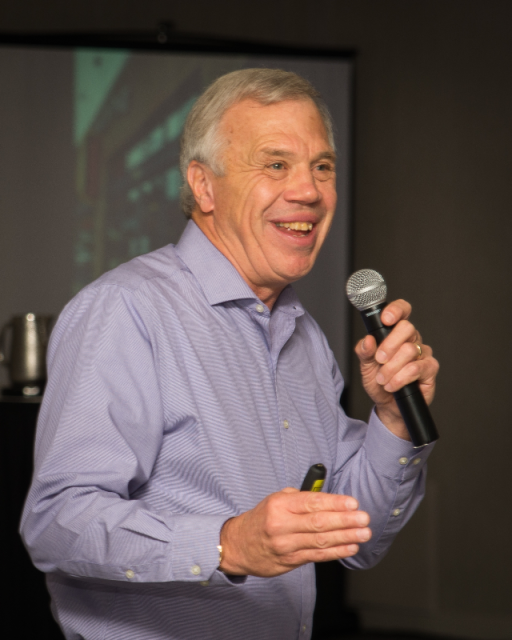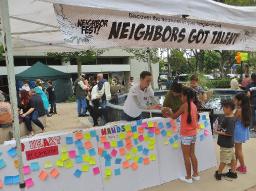
Jim Diers is driven by a passion to get people more involved in their communities and in the decisions that affect their lives. Over the past 40 years, he has served as a grass roots community organizer, community developer, and founding director of Seattle’s Department of Neighborhoods. Jim now shares the lessons from that work in his courses at the University of Washington; in international consulting through the Asset-Based Community Development Institute; and in his book, Neighbor Power. He has been recognized with an honorary doctorate from Grinnell College and as the Public Employee of the Year by the Municipal League of Martin Luther King County.
State or Province:
country:
USwhat are your gifts and talents?:
why do you want to join abcd in action?:
Better to Give AND Receive

“It is more blessed to give than to receive,” said Jesus. Most of us have experienced that truth. In giving, not only do we feel blessed, but we gain a deeper sense of self-worth. Ideally, we also give because we genuinely care about the recipients. But, if that is true, why do we deny so many of them their own pleasure of giving?
A gift isn’t a gift until it is given, and people can’t give unless others are willing to receive. Unfortunately, people seem to be more comfortable giving than receiving. That is the biggest challenge facing many time banks. Times banks are based on the principle of reciprocity and their members are expected to give and receive in equal measure. For every hour of service they provide, they are entitled to an hour of a service they need from another member. If services aren’t being requested, they can’t be given and the program doesn’t work.
Communities are confronted by this same dilemma. Community depends on its members receiving as well as giving. Community is all about mutual support. It’s based on the notion that everyone has gifts and everyone has needs. Community is at its best when its members are sharing one another’s gifts to meet one another’s needs.
Our society has tried to get around this problem of too few recipients by creating two classes of people – the haves and the have nots, those with the gifts and those with the needs. We have even labeled the needy people to avoid any confusion. When we refer to people as disabled, poor, at risk, non-English speaking, homeless, etc., we think of them as the have nots. But, if some people are doing most of the giving and other people are doing most of the receiving, it’s no longer about community. It’s about services. The relationship isn’t one of neighbor to neighbor or citizen to citizen but rather one of donor/volunteer to recipient/client.
Not only are such one-way relationships detrimental to community, but they are detrimental to the individuals involved – both the giver and the recipient. All of us are better off when we have the humility and wisdom to realize that our lives can be greatly enriched by accepting the unique gifts that others have to offer.
True, some of us have much more time and money than others and we should give accordingly and unconditionally. But, we must also acknowledge that we don’t have a monopoly on gifts. Gifts of knowledge, skills, passions and relationships can be even more valuable than money, and everyone has those. No one has everything they need for a good life. We need one another’s gifts.
This reminds me of an initiative sparked by Lois Smidt in Ames, Iowa. Lois understood that everyone has poverty in their lives. For some, poverty is a lack of money and for others, it is a dearth of meaning and relationships. Lois found that those with the most money often had the least meaning and fewest relationships. So, she brought people together across class to share their gifts in ways that helped one another address their poverty.
Likewise, the pandemic highlighted the indispensable role of mutual aid. Even with physical distancing, our sense of community deepened and expanded as we realized that we were all in this together. We felt connected to people beyond our immediate circle of friends. We experienced how interdependence is key to our health and happiness.
The pandemic reminded us that everyone has gifts and that our community needs them all. In my own community of Vashon Island, Washington, we gained an increased appreciation for the role of workers in health care, food, transportation, education and other essential services. Neighbors supported one another with rides, shopping, child care, little free pantries, physically-distanced companionship, and whatever else was needed. Other volunteers met the needs of the larger community by preparing meals, sewing masks, offering counseling, and helping with COVID testing and vaccinations. Musicians performed virtual concerts to keep us entertained and artists used their craft to encourage us to adopt safe practices. A fund was created to help neighbors who needed money for food or rent. An individual, who some may have labeled as developmentally disabled, delivered flowers to comfort those who were grieving or isolated and to thank those who made extraordinary contributions. Most people found a way to give and everyone benefited. I have heard of similar responses to the pandemic in communities throughout the world.
While strengthening our common bond, the pandemic in combination with the murder of George Floyd was a jolting reminder that some of us are much more privileged than others. The disproportionate mortality rate for Black, Latinx and Native Americans due to DOVID-19 and police violence brought the evil of racism into sharp relief. It also brought many more people into the struggle for social justice.
Unfortunately, some of the more privileged social justice advocates only compounded the problem. They were so focused on oppression that they failed to recognize the gifts and agency of those they sought to liberate. In the process, well intentioned liberators became the oppressors. Of course, systems of racism, classism, ablism, sexism and ageism must be dismantled so that everyone has the opportunity to realize their full potential, but those struggles must be led by those most impacted. The relatively privileged can be most helpful by honoring that leadership and offering support.
It is imperative that we move towards equity if we are going to realize Dr. Martin Luther King’s dream of a Beloved Community. But, we must do so in a way that builds on everyone’s gifts. When we all give generously and receive graciously in support of the common good, then we will be truly blessed.
